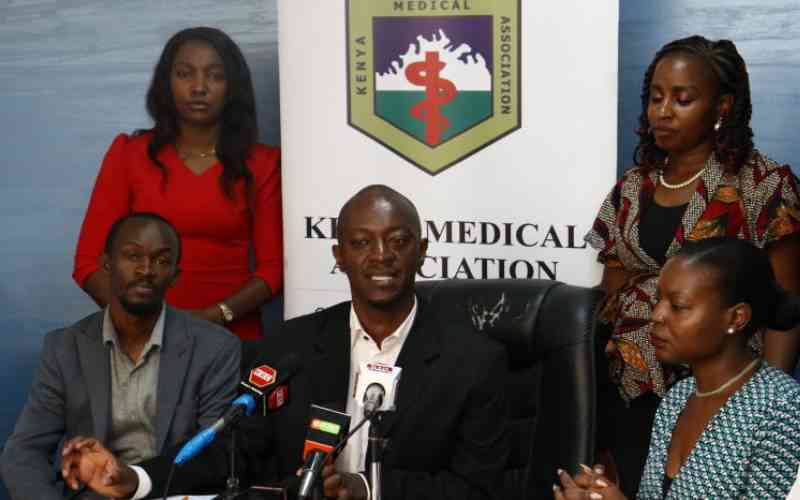×
The Standard e-Paper
Smart Minds Choose Us

Images of a bloody doctors' union boss Davji Atella during Thursday's protest once again cast the spotlight on the National Police Service, perennially accused of brutality.
The secretary-general of the Kenya Medical Practitioners and Dentists Union (KMPDU) was leading a peaceful demonstration over the delay in posting intern doctors, who have waited nearly a year, to undertake the compulsory internship.